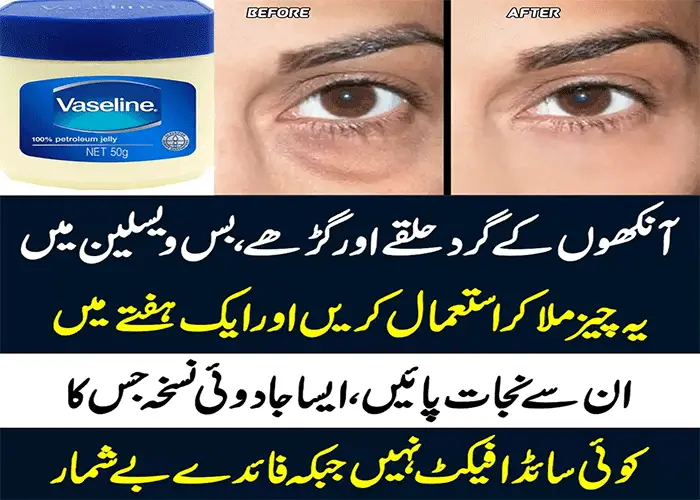
In our fast-paced, technology-driven world, it’s not uncommon for many of us to experience moments of low vision. Whether it’s the strain of staring at screens for extended periods, the constant exposure to artificial lighting, or simply the natural aging process, our eyes can sometimes bear the brunt of our modern lifestyles.
1. Prolonged Screen Time and Digital Eye Strain: In the digital age, our eyes are frequently glued to screens – be it computers, smartphones, or tablets. Prolonged exposure to these devices can lead to digital eye strain, characterized by symptoms such as dry eyes, headaches, and blurred vision.
Improve Eyesight Naturally (Urdu)
To combat this, it’s essential to take regular breaks, follow the 20-20-20 rule (looking at something 20 feet away for 20 seconds every 20 minutes), and ensure proper lighting in your workspace.
2. Inadequate Nutrition
Our eyes, like any other part of our body, require essential nutrients to function optimally. A deficiency in key vitamins and minerals such as vitamins A, C, and E, as well as zinc, can contribute to poor vision. Including a variety of colorful fruits and vegetables in your diet can provide the necessary nutrients for maintaining eye health.
3. Lack of Physical Activity
A sedentary lifestyle can impact not just our overall health but also our eyesight. Regular exercise improves blood circulation, which is crucial for delivering oxygen and nutrients to the eyes. Simple activities like walking, jogging, or yoga can make a significant difference in preserving and enhancing your vision.
4. Exposure to Environmental Factors
Pollution, dust, and harmful UV rays can also take a toll on our eyes. Wearing sunglasses that block UVA and UVB rays can protect your eyes from the harmful effects of the sun. Additionally, staying mindful of your surroundings and avoiding prolonged exposure to pollutants can contribute to better eye health.
Practical Tips for Natural Vision Improvement
1. Nutrient-Rich Diet
A well-balanced diet plays a pivotal role in maintaining good eyesight. Include foods rich in vitamins A, C, and E, such as carrots, spinach, citrus fruits, and almonds. Omega-3 fatty acids found in fish like salmon and trout can also support eye health. Adopting a colorful and diverse diet ensures you receive a broad spectrum of nutrients essential for optimal vision.
2. Stay Hydrated
Proper hydration is crucial for overall health, including eye health. Drinking an adequate amount of water helps prevent dry eyes and maintains the fluid balance in your eyes. Limiting the consumption of caffeinated and alcoholic beverages, which can contribute to dehydration, is equally important.
3. Exercise Regularly
Engaging in regular physical activity benefits not only your body but also your eyes. Cardiovascular exercises improve blood circulation, reducing the risk of age-related macular degeneration and other eye conditions. Aim for at least 30 minutes of moderate exercise most days of the week to support your overall well-being.
4. Practice Eye Exercises
Just as your body needs exercise, so do your eyes. Simple eye exercises can help strengthen eye muscles and improve focus. Try activities like focusing on a distant object, rolling your eyes clockwise and counterclockwise, or palming – covering your closed eyes with your palms to create a dark environment. Incorporating these exercises into your daily routine can contribute to better eyesight.
5. Ensure Proper Lighting
Proper lighting is essential for preventing eye strain. When reading or working on screens, make sure your lighting is sufficient, and avoid glare from windows or overhead lights. Position your screen at eye level to reduce strain on your neck and eyes. Natural light is the best, so try to incorporate it into your workspace whenever possible.
6. Get Adequate Sleep
Quality sleep is crucial for overall health, including eye health. Lack of sleep can contribute to eye fatigue and discomfort. Try to sleep for 7-8 hours straight every night to give your eyes a good rest and help them feel refreshed.
FAQ about Low Vision:
1. Can Doing Eye Exercises Really Help My Vision?
Yes, doing simple eye exercises regularly can make your eyes stronger and improve your ability to focus. It’s like giving your eyes a workout. Try exercises like palming, looking at things up close and far away, and rolling your eyes gently.
2. Does Stress Affect My Vision?
Yes, stress can mess with your vision. When we’re stressed, we often tighten our face and eye muscles without realizing it. This tension can lead to headaches, blurry vision, and overall discomfort. Relaxation methods like deep breathing or mindfulness can indirectly make your vision better by reducing stress.
3. Why is Vitamin D Important for My Eyes?
Getting enough vitamin D is important for your eyes. Vitamin D has anti-inflammatory properties that can help keep your eyes healthy. You can get vitamin D from sunlight, so try spending some time outside. If that’s tricky, you can also take supplements.
4. Can Certain Foods Make My Vision Worse?
Yes, some foods can make your vision worse. Foods high in sugar and unhealthy fats can mess with your blood flow, including the blood flow to your eyes. So, try to eat less of those and focus on a balanced diet with lots of good nutrients.
5. How Does Bad Posture Affect My Eyes?
Surprisingly, bad posture can affect your eyes. Slouching can cause tension in your neck and shoulders, messing with the blood flow to your eyes. Sitting up straight can help reduce strain on your eyes.
6. Can Allergies Mess with My Vision?
Yes, allergies can make your eyes itchy and red, messing with your vision temporarily. Taking allergy medicine or avoiding things that make you allergic can help your eyes feel better and see more clearly.
7. Can I Do Too Many Eye Exercises?
Yes, it’s possible. Just like any other muscle, your eyes need rest. If your eyes feel tired or strained, take a break from exercise. Don’t overdo it – a little at a time is better.
8. Can Special Glasses for Blue Light Really Help My Eyes?
Yes, these glasses can be helpful. Staring at screens a lot exposes your eyes to blue light, which can make them tired. These glasses block some of that blue light, making your eyes less tired and potentially helping you sleep better if you use screens a lot.
In summary, if you’re worried about your eyesight, making some easy changes to your lifestyle can really help. Paying attention to what you eat, staying active, and taking care of your eyes can make a big difference. Remember, even small daily habits can make your eyes stay healthy and work well for a long time.






